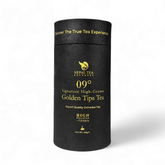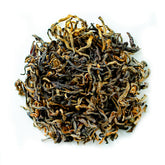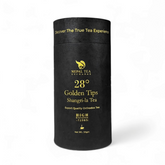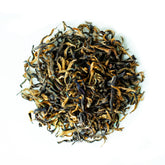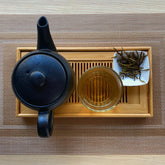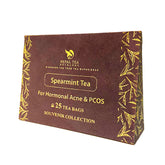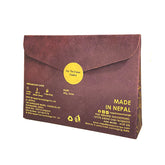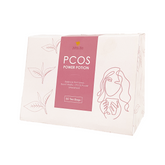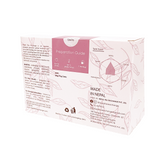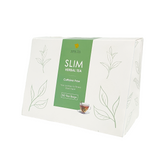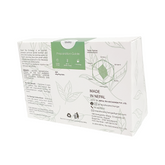Organic Teas: Everything You Need to Know
In Nepal, the demand for organic teas is on the rise. With growing awareness of health benefits, environmental sustainability, and the unique flavors of Nepali tea, more people are shifting towards organic options. If you are curious about organic tea and want to explore the world of Nepali organic teas, this blog has everything you need to know.
What is Organic Tea?

Organic tea refers to tea grown and processed without the use of synthetic fertilizers, pesticides, or other harmful chemicals. Instead, it relies on natural and sustainable farming techniques, ensuring better health for consumers and the environment.
In Nepal, organic tea farming has deep roots. Historically, regions like Ilam and Dhankuta have been cultivating high-quality orthodox teas using natural methods. Today, organic certification ensures that these teas meet stringent global standards, such as those set by the USDA and other regulatory bodies. These standards include:
-
Crop Standards: No synthetic chemicals are used.
-
Livestock Standards: If animals are involved in farming, they are raised naturally.
-
Handling Standards: Organic integrity is maintained throughout processing.
Organic Tea and Nepal

Nepali teas, particularly those from Ilam, are renowned for their distinctive flavor profiles and high quality. The country’s organic tea production supports small-scale farmers and promotes sustainable agriculture. Nepal Tea Exchange (NTE), for instance, collaborates with local farmers to produce export-grade organic teas that reflect Nepal’s rich tea heritage.
Role of The National Tea and Coffee Development Board (NTCDB)
The National Tea and Coffee Development Board (NTCDB) plays a vital role in promoting the cultivation, production, and export of tea and coffee in Nepal. Established by the Government of Nepal, NTCDB works to:
-
Support Farmers: Provide technical assistance, training, and subsidies to small-scale tea farmers.
-
Ensure Quality: Oversee quality control standards for Nepali tea and coffee, ensuring they meet international requirements.
-
Promote Organic Practices: Advocate for organic farming methods to enhance sustainability and health benefits.
-
Expand Markets: Facilitate connections between Nepali tea producers and international markets, boosting exports.
Through its initiatives, NTCDB has significantly contributed to the global recognition of Nepali teas, particularly those from Ilam and Jhapa, making them sought-after products in the international market.
Criteria for Organic Tea Certification
Globally recognized organizations such as the USDA, EU Organic Certification Bodies, and IFOAM define the criteria for organic tea certification. In Nepal, organic teas must also comply with similar standards to meet international demand.
-
No synthetic fertilizers or pesticides are allowed.
-
The land used for farming must be free of restricted substances for at least three years.
-
Detailed records of farming and processing activities must be maintained.
-
Certification involves inspection by authorized bodies.
Types of Organic Tea in Nepal
Nepal’s tea gardens produce a variety of organic teas that cater to different tastes and preferences. Here are some popular options:
1. Organic Black Tea
Nepal’s organic black teas, such as the ones from Ilam, are fully oxidized and boast robust flavors.
2. Organic Green Tea
Known for its fresh, light taste, Nepali organic green tea is packed with antioxidants. Loose-leaf varieties and green teas like Danfe Tea’s offerings are popular.
3. Organic Oolong Tea
Nepali oolong teas, with their partially oxidized leaves, provide a balanced flavor profile between green and black teas.
4. Organic White Tea
Harvested with minimal processing, organic white tea from Nepal has a delicate flavor and low caffeine content. Silver Needle is a sought-after variety.
5. Organic Herbal Tea
For those seeking caffeine-free options, Nepali organic herbal teas such as chamomile, tulsi, and hibiscus are ideal. These teas are known for their calming and therapeutic effects.
Health Benefits of Organic Tea
Switching to organic tea offers several health benefits. Nepali organic teas, in particular, are packed with nutrients and free from harmful chemicals. Here are some potential benefits:
1. Supports Weight Management
Organic green teas from Nepal, rich in catechins like EGCG, can boost metabolism and support weight loss efforts.
2. Reduces Cancer Risk
The antioxidants in organic teas help protect cells from damage, potentially reducing the risk of cancer.
3. Improves Heart Health
Studies show that regular tea consumption can lower cholesterol and improve heart health. Nepali organic teas, with their high nutrient content, are a great choice.
4. Boosts Digestive Health
Herbal teas like peppermint and ginger, commonly grown in Nepal, aid digestion and alleviate bloating.
5. Enhances Mood
Teas like chamomile and tulsi can help reduce anxiety, promote relaxation, and enhance mental clarity.
Conclusion
Nepali organic teas are not just beverages; they represent a commitment to health, sustainability, and the heritage of Nepal’s tea culture. Whether you choose green, black, or herbal, every cup of Nepali organic tea offers a taste of the Himalayas and the dedication of small-scale farmers.
Experience the finest organic teas with Nepal Tea Exchange. From the lush gardens of Ilam to your cup, savor the richness of Nepali tea, produced with care and quality. Cheers to healthier sips!
Common FAQs About Organic Tea in Nepal
1. How is Nepali organic tea different from conventional tea?
Nepali organic tea is grown without synthetic chemicals, promoting both health and sustainability. Conventional teas often use pesticides and chemical fertilizers.
2. Does organic Nepali green tea contain caffeine?
Yes, it does. However, the caffeine content is lower than that of black tea.
3. What are the health benefits of Nepali organic tea?
Nepali organic teas support weight management, heart health, digestion, and relaxation due to their high antioxidant content.
4. What is the best Nepali organic tea?
The best tea depends on your preferences. Popular options include organic green tea, black tea, and herbal teas like chamomile and tulsi.
5. Where can I buy Nepali organic tea?
You can purchase Nepali organic teas from Nepal Tea Exchange’s website or direct visit at outlet or Daraz in Nepal.


